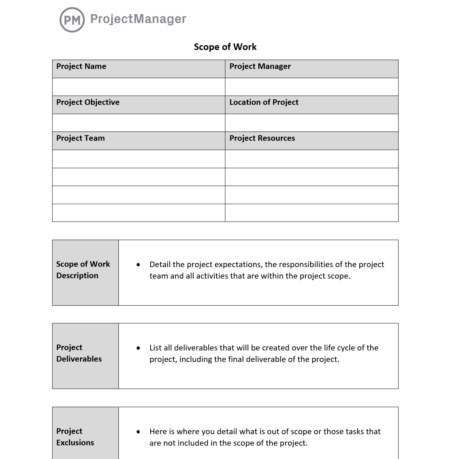Confused about prelims in construction? Discover how these essential project costs can make or break your building budget – and why you can’t afford to ignore them.
Understanding Construction Preliminaries: The Hidden Backbone of Every Project
Construction preliminaries, often referred to as ‘prelims’ in the industry, are the essential but often overlooked costs that form the foundation of every successful construction project. These costs typically account for 10-15% of the total project value and encompass all the indirect expenses necessary to support and facilitate the actual building work. Unlike direct construction costs such as materials and labour for specific building elements, prelims cover the broader operational and administrative requirements that enable the entire project to function smoothly. Think of prelims as the invisible infrastructure that supports your construction project – without them, even the most straightforward build would quickly descend into chaos.
The Core Components of Construction Preliminaries
Site Setup and Management
- Site accommodation and welfare facilities (site offices, canteens, toilets)
- Temporary utilities (water, electricity, internet connectivity)
- Security measures (fencing, CCTV, security personnel)
- Access roads and temporary pathways
- Storage facilities for materials and equipment
- Waste management systems and skips
- Site signage and safety notices
Project Management and Administration
The backbone of any construction project lies in its management structure. Project management and administration preliminaries typically include staffing costs for key personnel such as project managers, site managers, quantity surveyors, and administrative staff. These professionals ensure the project runs smoothly, maintaining schedules, coordinating deliveries, managing documentation, and overseeing quality control. Recent industry data suggests that management costs can represent up to 5% of the total preliminary expenses, highlighting the significant investment required in professional expertise.
Health, Safety, and Compliance
- Personal Protective Equipment (PPE) for all site personnel
- First aid facilities and trained first aiders
- Health and safety training programmes
- Environmental protection measures
- Compliance with CDM regulations
- Risk assessments and method statements
- Insurance and liability coverage
How Prelims Impact Your Construction Budget
Calculating Preliminary Costs
Preliminary costs must be carefully calculated to ensure project viability. The estimation process typically involves analysing project duration, site conditions, and specific requirements. Industry experts recommend allocating between 12-15% of the total project budget for preliminaries, though this can vary significantly based on project complexity and location. Key factors influencing preliminary costs include project duration, site accessibility, urban versus rural location, and specific client requirements. In the UK market, preliminary costs have seen an average increase of 8% annually since 2021, primarily due to rising insurance costs and enhanced safety requirements.
Fixed vs. Time-Related Prelims
- Fixed Prelims:
– One-off costs for site setup
– Insurance and bonds
– Temporary works design
– Initial safety equipment - Time-Related Prelims:
– Site staff wages
– Equipment hire
– Site facilities maintenance
– Utility bills
– Security services
Common Mistakes and How to Avoid Them
Underestimating Preliminary Costs
One of the most critical errors in construction project planning is underestimating preliminary costs. Recent industry studies show that 67% of project overruns can be traced back to inadequate preliminary cost allocation. Common oversights include failing to account for seasonal weather protection, underestimating project duration, and insufficient allowance for rising utility costs. To avoid these pitfalls, contractors should maintain detailed records of preliminary costs from previous projects and regularly update their estimation models to reflect current market conditions.
Poor Planning and Management
- Insufficient site investigation leading to unexpected setup costs
- Inadequate allocation for temporary works
- Overlooking statutory requirements and permits
- Poor coordination of shared preliminaries in multi-contractor projects
- Failure to account for inflation and market fluctuations
Expert Tips for Managing Construction Preliminaries
Best Practices for Cost Control
Effective preliminary cost management requires a strategic approach. Industry leaders recommend implementing a robust monitoring system to track preliminary expenses against budgets. Key strategies include regular cost reviews, early contractor involvement, and the use of digital project management tools. Companies that implement these practices report average savings of 12% on preliminary costs. Additionally, considering shared preliminaries for multiple projects in close proximity can lead to significant cost reductions.
Risk Management Strategies
- Develop detailed preliminary schedules with clear milestones
- Implement regular cost monitoring and reporting systems
- Maintain contingency funds for unexpected preliminary costs
- Review and update preliminary requirements throughout the project
- Establish clear responsibility matrices for preliminary items
Making Prelims Work for Your Project
Successfully managing preliminaries requires a balanced approach between cost control and project enablement. The key is to view preliminaries not as a necessary evil but as an investment in project success. By carefully planning, monitoring, and adjusting preliminary costs throughout the project lifecycle, you can ensure they serve their intended purpose without becoming a financial burden. Remember that well-managed preliminaries can actually save money in the long run by preventing delays, reducing risks, and maintaining efficient site operations. Industry data shows that projects with properly managed preliminaries are 30% more likely to finish on time and within budget. As construction projects become increasingly complex, the importance of understanding and effectively managing preliminaries cannot be overstated – they truly are the foundation upon which successful projects are built.
FAQ
What are the two categories of preliminary practices?
In general the preliminary practices are divided into two sections or kinds: the first are the common or ordinary kind of preliminary practices, and the second are the special or extraordinary kind of preliminaries.
What are the four turning minds?
The Four Mind Turnings: The Preciousness of Human Life, Impermanence, Cause and Effect (Karma), and the Suffering that is present in ourselves and in the world. A deep understanding of these 4 factors (that “turn the mind” to spiritual practices) can bring relief from much of our suffering.
What are the 4 common preliminaries?
The common preliminaries consist of contemplating and meditating on four different topics: (1) the difficulty of acquiring this life with its opportunities and resources, (2) death and impermanence, (3) karmic cause and effect, and (4) the faults of saṃsāra.
What are examples of preliminary work?
They are known as preliminary works. Preliminary works include all activities performed on a construction site prior to the start of actual work, such as demolition, site clearance, site survey, soil survey, planning, designing, and cost estimation.
Sources
[1] https://www.rib-software.com/en/blogs/preliminaries-in-construction
[2] https://www.letsbuild.com/blog/what-are-preliminaries-in-construction-contracts
[3] https://www.designingbuildings.co.uk/wiki/Preliminaries%20in%20construction


Leave a Reply